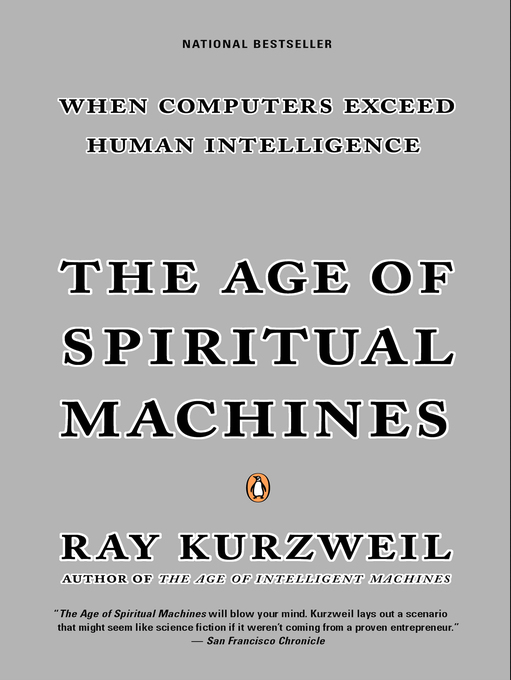
December 16, 2020
'The Age Of Spiritual Machines' by Ray Kurzweil
If a chessboard were to have wheat placed upon each square such that one grain were placed on the first square, two on the second, four on the third, and so on (doubling the number of grains on each subsequent square), how many grains of wheat would be on the chessboard at the finish?https://en.wikipedia.org/wiki/Wheat_and_chessboard_problem
Chess, Wheat (or Rice) and Life
According to Ray Kurzweil, author of ‘The Age Of Spiritual Machines’, physics begets chemistry begets biology, which begets technology.
Technology is the continuation of evolution by other means…‘The Age Of Spiritual Machines’, pg. 32
Technological innovation today is advancing at seemingly exponential rates, much like the wheat on the chessboard problem. It could be that the end of 2020 represents a tipping point in the ‘wheat and chessboard’ conundrum whereby the grains of wheat, or technological innovations in computing speed and processing power, are growing such that it is becoming an overwhelmingly powerful force (like the sheer volume of wheat in the second half of the chessboard).
Again with the game of chess and computing. In last week’s podcast episode, we talked about chess child prodigy, Josh Waitzkin, in the context of accelerated learning, machine learning and aritifical intelligence. Chess is similarly mentioned throughout Kurzweil’s book as a great game for studying artificial intelligence by helping to understand the way human thinking is brought to bear in winning chess games.
 SPONSORED: Visit Ovoka Farm online for prime Angus and Wagu beef cuts: Ovoka Farm.
SPONSORED: Visit Ovoka Farm online for prime Angus and Wagu beef cuts: Ovoka Farm.
The End Of Moore’s Law
On the internet you will find whispers of the possible end of ‘Moore’s Law’ - the consistent pattern in the doubling of computing power every two years due to the increase in the number of transistors that can be fit on silicon chips. However, physics seems to dictate limits in just how small these transistors can actually pack while also remaining efficient in transmitting data.
But the true power in Moore’s Law has been the huge increases in Gross Domestic Product (GDP) directly attributable to faster and smaller computing chips evolving over the last 50 or so years. From the internet, to laptops, to game consoles, to tablets, to cell phones, ad infinitum. The global economy has greatly benefitted, if not relied upon, the year-over-year reliability of Moore’s Law. Moreover, the very hope in the future of artificial intelligence is deeply rooted in this law (or would-be predecessor).
‘Save us Nvidia! You’re our only hope!’, pleaded Princess Pleiah in a parallel galaxy far, far away.
Conclusion
The demise of Moore’s Law could lead to a slow-down in technological innovation in the computing space, thus causing Kurzweil’s AI dystopian timeline to fall further behind that defined in his book (this without any additional friction from the would-be Luddites in society).
Then again, some new technological innovation could soon take-off in the gap (like quantum computing), which might move us even more swiftly into the ultimate realization of the final singularity (i.e., victory of AI over their progenitor humans).
In the meantime, I say let’s figure out how to use ML/AI to turn wheat into money (or beer) in this game of chess we call life. Sleep is for the dead…
Relevant Links
James Caple
BLOG
podcast career goals professional growth continuous learning ray kurzweil the art of learning machine learning artificial intelligence singularity gordon moore moore's law cpu gpu garry kasparov deep blue